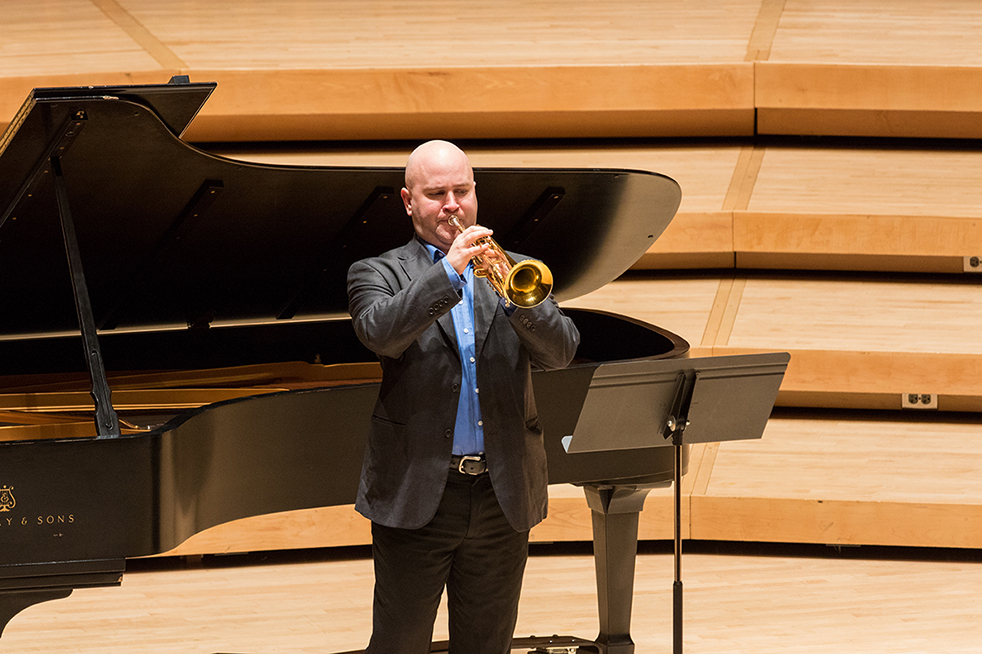This past weekend, Emory University hosted the 12th annual Atlanta Trumpet Festival. As the specialized nature of the event suggests, the festival was not the most popular weekend attraction on the Emory campus but promised a great opportunity for those interested to hone their musical skills.
Each year, the Atlanta Trumpet Festival provides a hands-on educational experience for trumpet players of all ages and experience levels. The schedule of the festival is undeniably centered on the clinics held by professional trumpeters and educators interspersed with ensemble rehearsals preparing the participants for the festival recital on Sunday.
Although the majority of the festival is not geared towards a general audience, the hour-long Guest Artist Recital on Saturday evening was surprisingly enjoyable for the uninitiated and the aficionado alike.
The recital started with the Atlanta Trumpet Ensemble’s animated rendition of composer Erik Morales’ “Infinite Ascent.” The stage was then turned over to the guest artists as the members of the Atlanta Trumpet Ensemble took their places among the audience to observe the masters of the instrument in action as they engaged the crowd.
One by one, the guest artists stepped on and off the stage of Emory’s 800-seat Cherry Logan Emerson Concert Hall for 45 minutes. Accompanying each artist was a single Steinway and Sons piano in the middle of the stage, allowing the trumpet to be the center of attention throughout the recital.
However, some members of the audience seemed to have a hard time paying attention to the actual performers. Possibly exhausted by a long day of trumpet playing and lacking stimulation from the minimalistic setup on the stage, a sleepy few could be spotted among the middle school students.
The pieces performed spanned several centuries of musical composition, ranging from German Baroque composer Georg Philipp Telemann’s “Sonata de Concert” to contemporary Swedish composer Jan Sandström’s “Sång till Lotta”.
Whereas some artists preferred to play pieces that emphasized technical ability, others played simpler and more instructive tunes. These instances pointed to a diverse selection in the recital’s repertoire. Unfortunately, that diversity was restricted only to the genre of classical music.
In the popular imagination, the trumpet is more closely connected to that certain kind of feeling elicited by the improvised swing of jazz than to the strict performance of classical music. Given the trumpet’s central role in most traditional jazz styles, it was hard not to be disappointed by the absence of jazz music in the otherwise satisfactory Guest Artist Recital.
The festival should have taken advantage of the fact that the mere sight of the trumpet inevitably brings to mind jazz legends the likes of Miles Davis and Louis Armstrong to engage a more diverse and perhaps a more crowded audience.
Overall, the 12th annual Atlanta Trumpet Festival was not as festive as one would expect from a festival but offered a relaxing evening to the attendees of its Guest Artist Recital.
